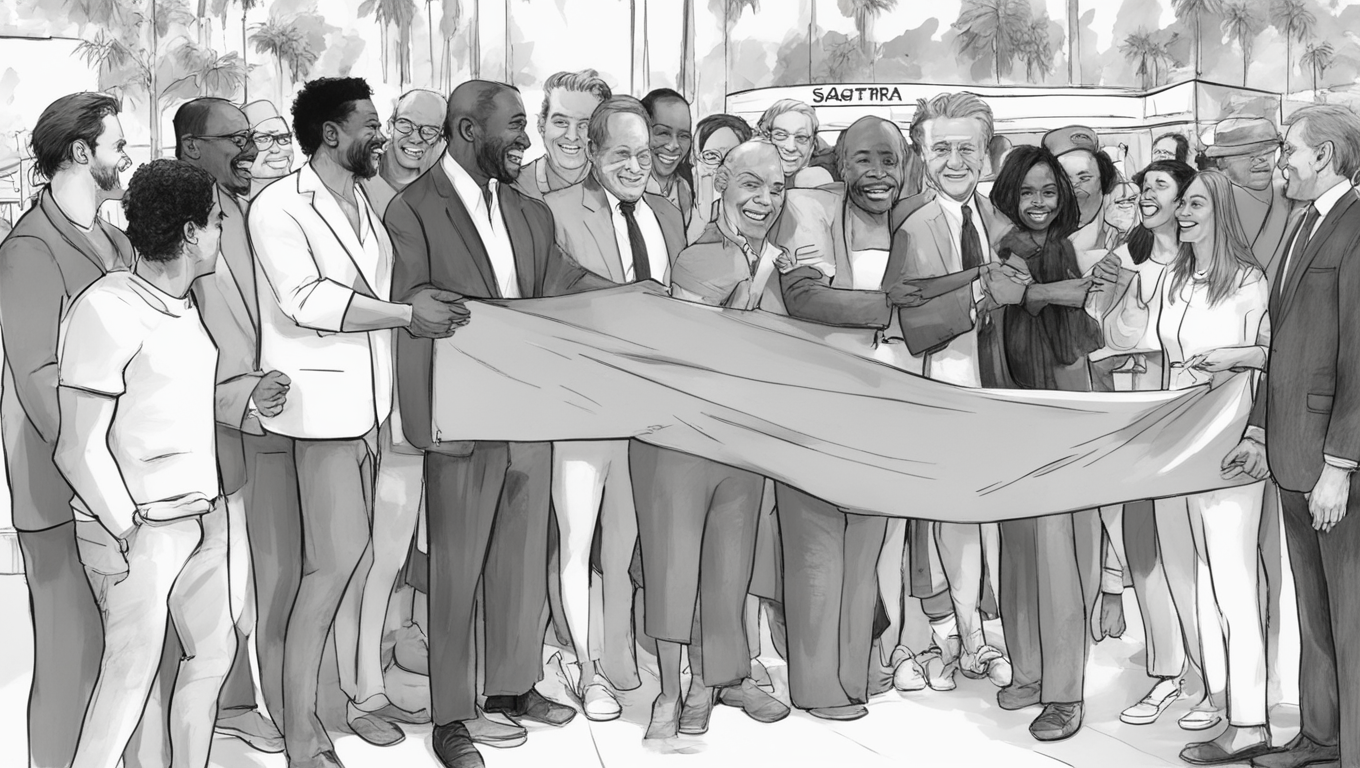After a tense 118 days, the strike by the Screen Actors Guild-American Federation of Television and Radio Artists (SAG-AFTRA) has finally come to an end. The strike, which was initiated to demand salary increases and job security against the rising threat of artificial intelligence (AI) in Hollywood, has resulted in a temporary agreement with the Alliance of Motion Picture and Television Producers (AMPTP).
In an official statement, the AMPTP expressed satisfaction with the temporary agreement, stating that it gives SAG-AFTRA significant gains and puts safeguards in place regarding the use of AI. However, no specific details regarding the terms of the agreement were provided.
This agreement represents a milestone for SAG-AFTRA, as it secures the largest contract-on-contract gains in the union’s history. Included in the agreement are the largest increase in minimum wages in the last four decades, a new residual for streaming programs, and extensive consent and compensation protections in the use of AI. These measures aim to ensure that actors are fairly compensated and protected as AI technology continues to evolve and play a larger role in the entertainment industry.
The value of the contract is estimated to be over $1 billion, exceeding industry standards and exceeding expectations. For the first time, a comprehensive agreement on AI has been reached, which will contribute to the expansion of retirement benefits and health insurance coverage for SAG-AFTRA members.
The strike by SAG-AFTRA followed in the footsteps of the Writers Guild of America (WGA), which had initiated its own strike earlier in the year for similar reasons. The two strikes were eventually combined, with both unions fighting for fair compensation and job security in the face of an increasingly challenging working environment due to AI integration.
The WGA strike came to an end after five months, with a pre-agreement reached between the union leaders and the AMPTP. The three-year agreement encompasses provisions on compensation, employment duration, and control over the use of AI. This marks the end of a turbulent chapter for both actors and writers in Hollywood, who have demonstrated their determination to protect their interests in an industry that is rapidly changing.
It is important to note that this is not the first time Hollywood has experienced strikes of this scale. In 2007, writers went on strike for 100 days, resulting in approximately $2 billion in losses. The strikes serve as a reminder of the power that organized labor holds in an industry driven by creativity and innovation.
The resolution of the SAG-AFTRA strike is a significant development for the entertainment industry, as it sets a precedent for negotiations and contracts in the age of AI. By securing fair wages, job security, and protections against the use of AI, actors and writers are sending a message that they are committed to ensuring their place in an industry that is constantly evolving.
As the industry moves forward, it will be interesting to see how the temporary agreement between SAG-AFTRA and the AMPTP will pave the way for future negotiations and how it will shape the relationship between artists and AI in the years to come. Only time will tell how these changes will impact the way stories are told on the big screen and beyond.





Use the share button below if you liked it.